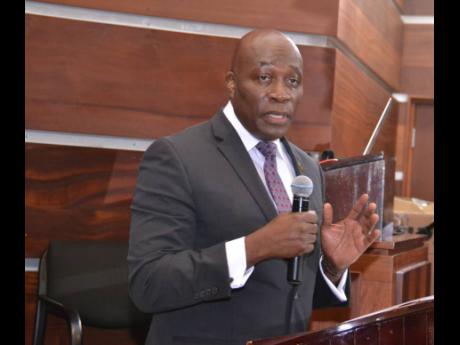Sykes: Juries convict more than judges
Citing data showing a higher conviction rate for jury trials, Chief Justice Bryan Sykes reiterated his support on Thursday for judges to determine verdicts amid the COVID-19 pandemic’s risk of spread in close quarters.
Sykes’ pushback offered resistance to a gathering lobby by some attorneys-at-law, including Hugh Wildman, who have argued that jury trials are a right in principle and in law.
Addressing a rare press conference held by the judiciary, the chief justice maintained that Jamaicans were guaranteed “a right to a fair trial with a properly constituted and impartial court”.
Sykes rubbished claims that judges were prone to being biased in favour of the prosecution, arguing that statistical evidence ran contrary to the narrative that bench trials produced higher conviction rates.
Judge-only trials have a 37 per cent conviction rate in the Circuit Court and Gun Court, Sykes said, while convictions in jury trials stood at 46 per cent.
“When you look at the cases coming from the Court of Appeal, no data has been presented indicating successful appeal on the basis that the judge is biased in favour of the prosecution,” Sykes told journalists at the Supreme Court building. “The judges at all levels are required to give reasons for the decisions that they make.”
The chief justice said that judges were compelled to demonstrate in writing how they arrived at their decisions.
“Where there is a conflict with the element, the judge has to demonstrate by reason why they prefer Witness A over Witness B. They have to demonstrate an understanding of the law applicable to that particular case and show how he or she came to a particular conclusion,” he explained.
Last month, Wildman said that jury trials were crucial because they allowed a defendant to be judged by his peers.
Arguing that English common law safeguarded the right to jury trial, Wildman had said that that principle, though not enshrined in the Jamaican Constitution, could only be abolished by an act of Parliament.

